Related Research Articles
"Gloria al Bravo Pueblo" is the national anthem of Venezuela. Its lyrics were written by physician and journalist Vicente Salias in 1810, set to music later composed by musician Juan José Landaeta. Owing to musical similarities with the French national anthem, beginning in 1840 "Gloria al Bravo Pueblo" was known as "La Marsellesa Venezolana". It was declared Venezuela's national anthem by decree of President Antonio Guzmán Blanco on May 25, 1881.
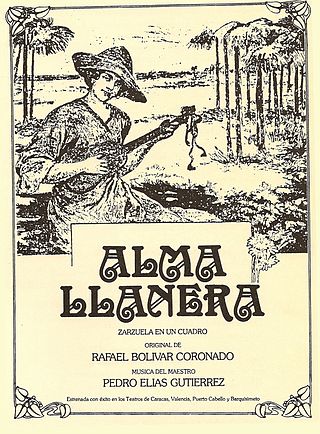
Several styles of the traditional music of Venezuela, such as salsa and merengue, are common to its Caribbean neighbors. Perhaps the most typical Venezuelan music is joropo, a rural form which originated in the llanos, or plains.

Andrés de Jesús María y José Bello López was a Venezuelan humanist, diplomat, poet, legislator, philosopher, educator and philologist, whose political and literary works constitute an important part of Spanish American culture. Bello is featured on the old 2,000 Venezuelan bolívar and the 20,000 Chilean peso notes.
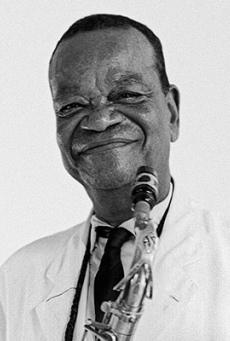
Alfredo da Rocha Viana Filho, known as Pixinguinha was a Brazilian composer, arranger, flautist and saxophonist born in Rio de Janeiro. Pixinguinha composed popular music, particularly within the genre of music known as choro.

Luis María Frómeta Pereyra most known as Billo Frómeta was a Dominican orchestra conductor, arranger and composer. Billo's compositions achieve international fame, and those dedicated to Caracas, where he married several times and raised a family, made him the most beloved of composers. He always included Dominican Merengue and mangulinas in his recordings.
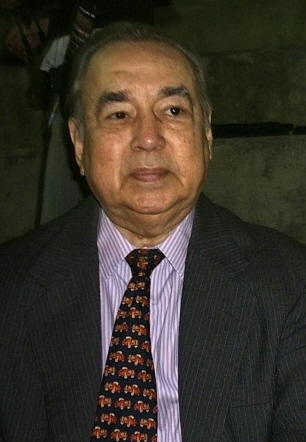
Aldemaro Romero was a Venezuelan pianist, composer, arranger and orchestral conductor. He was born in Valencia, Carabobo State.
Virginia (1873) is an opera in four acts with music by Venezuelan composer José Ángel Montero and libretto, in Italian, by Domenico Bancalari. It is believed to be the first opera ever composed in Venezuela, and was first performed in the Teatro Caracas on April 26, 1873. The plot of the opera deals with despotic power and social injustice.
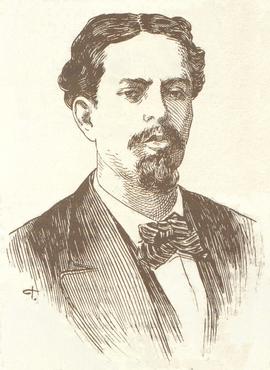
José Ángel Montero was a Venezuelan opera composer, a contemporary of the Brazilian Carlos Gomes. As maestro di capilla at the cathedral of Caracas he wrote religious music; he also composed a number of zarzuelas and, in 1873, the opera Virginia, to an Italian-language libretto.

Morella Valarino Muñoz, was a celebrated Venezuelan mezzo-soprano. She performed as a child under the pseudonym Morella Kenton, and as an adult as Morella Muñoz. She achieved national and international fame as a member of Venezuela's Counterpoint Quintet.

Alfredo Armas Alfonzo was a Venezuelan writer, critic, editor and historian, well known throughout Latin America. He was a master of the modern fable, a precursor of what soon would be called magical realism.
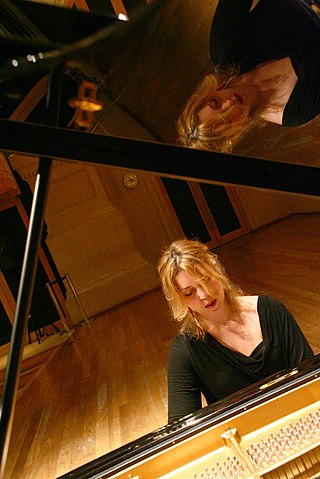
Gabriela Montero is a Venezuelan pianist, known in particular for her real-time improvisation of complex musical pieces on themes suggested by her audience and other sources, as well as for performances of standard classical repertoire.
Roberto Ruscitti, was an Italian-Venezuelan composer, soloist and pianist, Nationally and internationally recognized for his compositions and for his interpretations of Venezuelan folk music. As a matter of fact, one can still regularly hear his Tango in Paradise in Japan.

In Venezuela, since the opening of the Teatro Caracas and, earlier, the Teatro Maderero, there has been a great lyrical tradition ranging from serious opera to operetta, zarzuela, and Spanish musical reviews.

Isabel Aretz was an Argentine–Venezuelan researcher, writer, ethnomusicologist and composer.
Marianella P. Machado is a Venezuelan writer and composer.
Primo Casale (1904–1981) was an Italian-born Venezuelan conductor, composer, and violinist.

Plaza Venezuela is a public square located in Los Caobos neighborhood, Caracas, Venezuela. It was inaugurated in 1940 and is situated in the geographic center of Caracas.
Atanasio is a masculine given name which may refer to:
Fedora Alemán was a Venezuelan operatic soprano. One of Venezuela's most celebrated singers, she performed in concert halls throughout Latin America and Europe.

Corrado Galzio, was a noted musician and piano player who founded the International Music Festival of Noto and the Italian Music Conservatory in Caracas. He promoted the popularization of musical culture as well as initiating the interchanges between Italy and Venezuela. In Venezuela, he carried out an intense career as an artist, teacher, and director of successful radio and television programmes. He is widely recognised as the father of chamber music culture in the Latin American country.
References
- ↑ Sharon E. Girard, "Atanasio Bello Montero". The New Grove Online. (link)